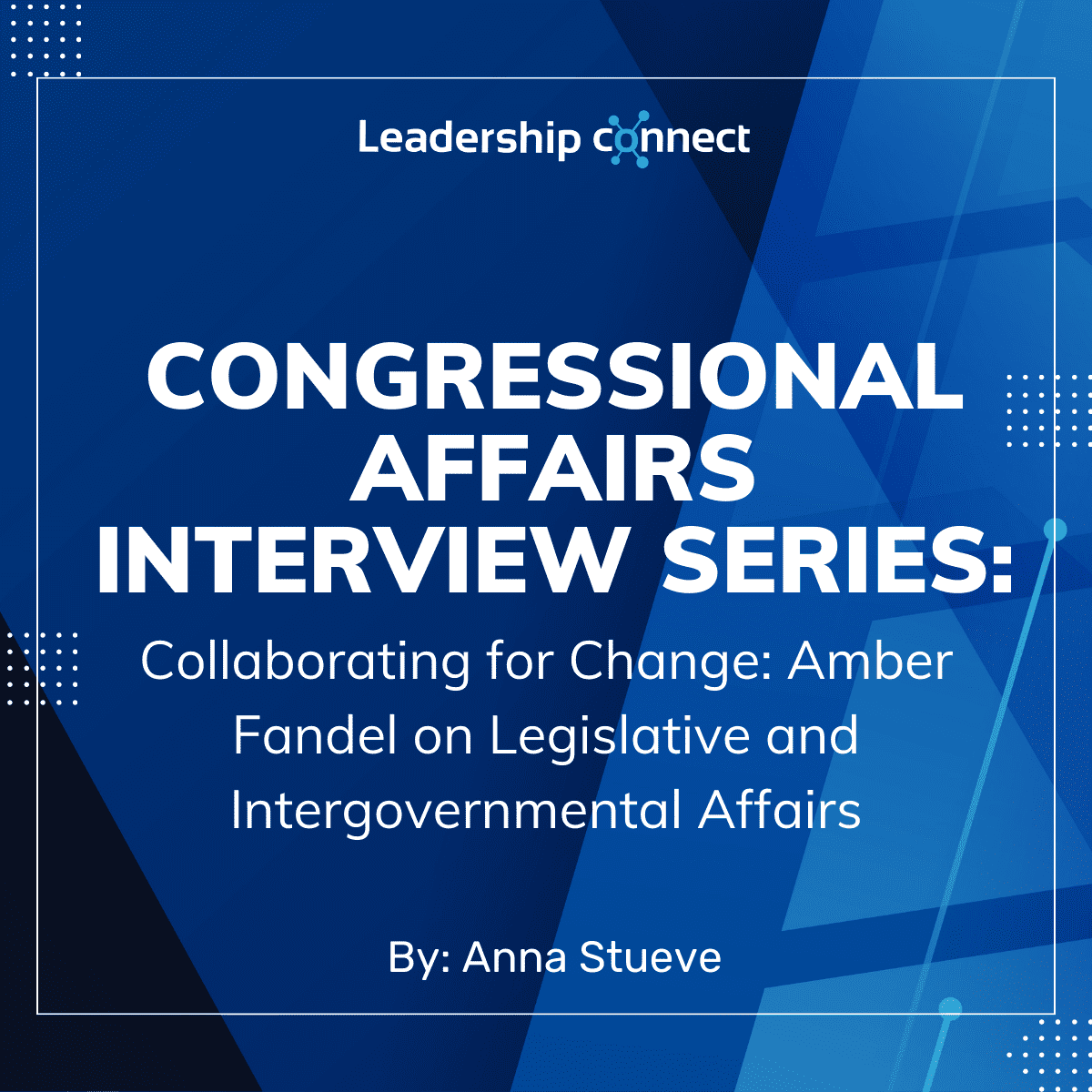Within NOAA’s Office of Legislative and Intergovernmental Affairs, Amber Fandel serves as another vital link between science and policy. Highlighting the importance of teamwork, OLIA’s work with Congressional, Tribal, and Intergovernmental affairs embodies NOAA’s commitment to integrating science with governance. Through various activities, from Congressional briefings to site visits and Tribal consultations, she exemplifies the collaborative effort required to seamlessly merge research goals with legislative priorities. In her interview, Amber emphasizes the value of teamwork in advancing NOAA’s mission to shape science-informed policies.
Can you tell me about your career path that has led you to where you are now?
I came in through the Knauss program, so the same as my colleague Katie, it was the Sea Grant Marine Policy Fellowship. It’s a great program – it takes people who are in graduate programs and places them somewhere in the government so it could be on the Hill, or in an agency. It’s a great opportunity to get your foot in the door and see what that kind of work is like, the applied policy side of science. My background is in marine mammal research – acoustics, so whales and dolphins, and that was great. I did that for a long time, but I was always curious about the policy side and implementation. I worked on the Hill for a couple of months and on a campaign to see what that was like. All great learning experiences. Then transitioned into a graduate program and ended up in Knauss and then NOAA. I think one of the things that’s so often missing from science, and I think we’re starting to get there now, is science communication. I have a background in education as well, I did wildlife education for K-12 for a handful of years. That was great but using that in the science and policy and campaign, it tied it all together very nicely.
Which specific policy area or legislative issues are you most passionate about, and how do you stay informed and engaged in those areas?
My portfolio covers fisheries, National Marine Fisheries Service. Within that, we get a lot of inquiries from Congress who hear from their constituents because we’re regulating their fishing. For a lot of folks, it’s important culturally and it’s how they sustain themselves. Regionally, I cover the area in the south Atlantic, Gulf of Mexico, Caribbean, and Alaska. Those might seem really disjointed but it’s where there are a lot of recreational fishers. So, folks that are not in the commercial sector, this is just what they do. I also cover offshore wind which is something I studied in graduate school and did a lot of work on. As far as staying informed – I read a lot of news. We keep it broad, try to get something from every perspective so we can anticipate what the Hill is going to ask us. I subscribe to all the member newsletters and have alerts for any time someone talks about NOAA or our programs. Lots of different streams are coming in.
What do you believe sets the federal government apart as a unique work environment, and how do you navigate its challenges in your everyday work?
There are many challenges, it’s bureaucratic. Things move slowly, they do move, but they move very slowly. That can be frustrating, especially coming from the Hill or a more dynamic field but I think having allies and folks that are fighting the good fight with you is helpful. As far as how the federal government is unique, we kind of see the full spectrum of policy. We see how it gets made and the implementation process that happens on the ground. For some of those things, we’re setting the policy, digging into some of those details and also giving the grants and doing work with communities. So, seeing it through the whole process is really cool; how it got made and the final implementation, sometimes very different but hopefully in line with the original intent.
Communication is the biggest thing. Making sure what we’re doing is in line with what the Hill intended us to do and trying to do it in a way that is helpful for communities and gives them what they need. Every community is different so that takes a lot of communication and work, but if we can deliver for them, it’s worth it in the end.
Describe a challenging or rewarding project that significantly influenced your growth as a professional. How did you handle the challenge, and what did you learn from the experience?
I don’t know if I have a super specific example, but anytime we have a hearing. Those are always a really good learning experience. It’s a great opportunity to work closely with the Hill and NOAA leadership to make sure our messaging is on point there, prepare the witness for what they’re going to experience on the Hill. It’s high stakes, maybe the most public thing that we do.
My first hearing was a real learning experience. I was helping the administrator prepare for a hearing, going through the process of writing the testimony, prepare the questions, prep him, it was intense, but I have a lot of great folks on my team who are always willing to help and walk folks through and we almost always have a Knauss fellow in our office so it’s a very friendly learning environment. That’s how I kind of got through that one – I learned a lot; it was a great experience.
What has made you successful in your role and what advice would you give to individuals who aspire to work in the Federal Government?
Teamwork has made me successful. Having a team that’s always willing to jump in and teach things you don’t know and just a passion for the work. It can be really overwhelming – there’s rarely ever a dull day. I know a lot of folks come in through academia, or through contracting and get to know the program when the jobs come through. That’s where I’ve seen folks have the most success.
It’s a tough field to get into. My advice is network, have those conversations. Do internships, have coffees, do shadowing, those sorts of things. First of all, figure out if it’s really what you want to do and how to get your foot in the door. Unfortunately, it’s still tough to get through the hiring process, but that’s my advice there.
Word Association, what is the first word that comes to mind for each of there?
- Policy – Congress
- Networking – Happy Hour
- Writing skills – Critical
- Federal Government – Bureaucracy
- Leadership Connect – Great Resource






